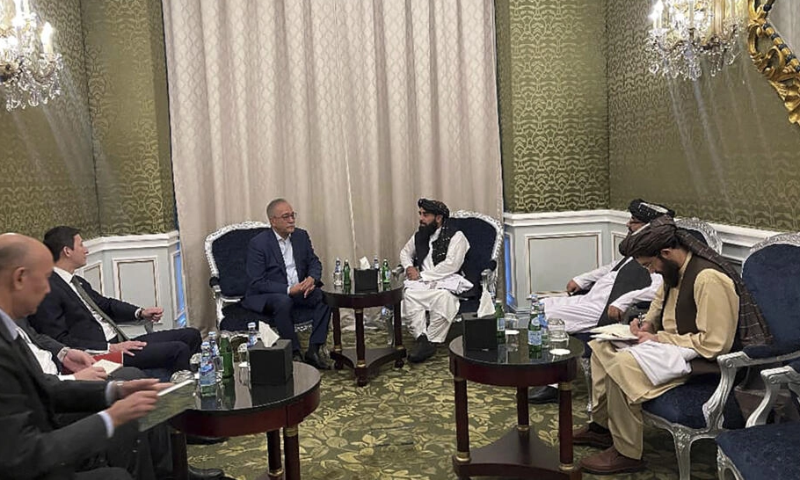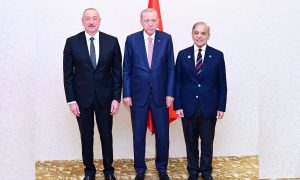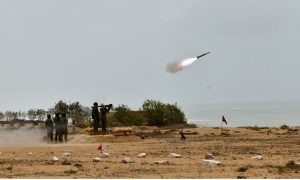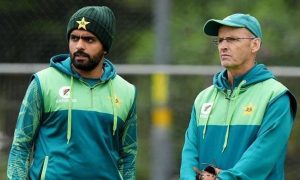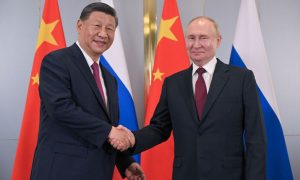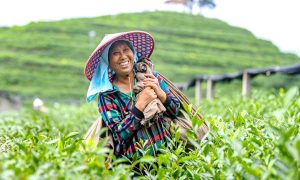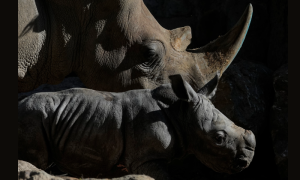DOHA: Representatives of Afghanistan’s Taliban government began meetings on Sunday with United Nations officials as they attended talks in Doha with special envoys to the Central Asian country for the first time since assuming power in 2021, a UN spokesperson said, AFP reported.
The two-day meeting, hosted by the UN in Qatar’s capital, is the third of its kind held in Doha in just over a year. However, this session marks the first inclusion of Taliban authorities in the talks.
A spokesperson for the UN, speaking anonymously to AFP, confirmed that preliminary discussions had begun, with separate meetings between UN officials and over 20 special envoys, including the US special representative to Afghanistan. “Preparatory discussions have begun with the UN meeting separately with many of the special envoys in attendance and with the Taliban representatives,” the UN spokesperson told AFP.
The Taliban delegation is led by spokesman Zabihullah Mujahid. The agenda for the talks in Doha includes discussions on enhancing engagement with Afghanistan and establishing a more coordinated international response to the country’s challenges, encompassing economic issues and counter-narcotics efforts.
Since the Taliban’s resurgence to power, the international community has grappled with its approach towards Afghanistan’s new leadership. The Taliban government in Kabul, which has not received formal recognition from any foreign government, has implemented a strict interpretation of the law, particularly affecting women whose rights have been severely curtailed under what the UN has described as “gender apartheid.”
During previous rounds of UN talks, the Taliban had been excluded from participation in May 2023 and had refused to attend the second round in February unless they were the sole representatives of Afghanistan. The current talks represent a compromise by excluding civil society groups initially scheduled to attend separately on Tuesday.
Ahead of the UN-hosted discussions, Taliban foreign ministry official Zakir Jalaly emphasized that any meetings occurring after Monday were not related to the official agenda, underscoring the Taliban’s conditions for participation.
The exclusion of civil society organizations from the talks has sparked criticism from advocacy groups, including women’s rights activists, who argue that accommodating Taliban conditions risks legitimizing their repressive policies.
“Caving into the Taliban’s conditions to secure their participation in the talks would risk legitimizing their gender-based institutionalized system of oppression,” head of Amnesty International Agnes Callamard said in a statement ahead of the talks.
Responding to concerns over women’s rights, Taliban spokesman Zabihullah Mujahid stated in a news conference in Kabul that the Taliban acknowledges these concerns but asserts they are internal Afghan matters to resolve.
Afghanistan expert Hameed Hakimi acknowledged international concerns over women’s rights and civil society’s role, noting the delicate balance policymakers face in engaging with the Taliban while upholding humanitarian principles.
The Taliban delegation in Doha also held preliminary meetings with special envoys from Russia, India, and Uzbekistan ahead of the UN-hosted discussions, according to Mujahid’s statement on X.
In recent years, many governments, international organizations and aid agencies cut off or severely scaled back their funding to Afghanistan in response to the Taliban authorities’ return to power — dealing a serious blow to the already struggling economy.









